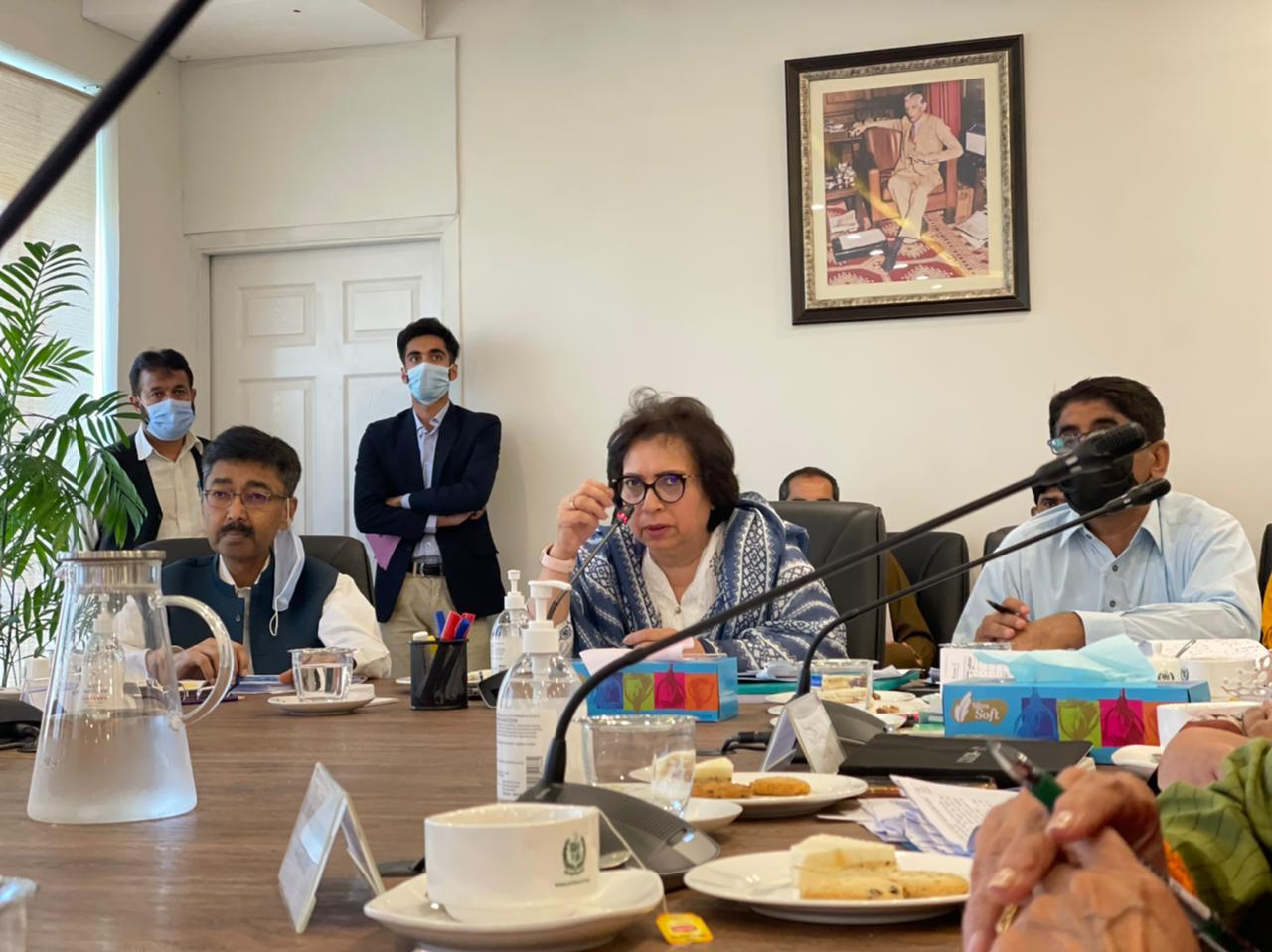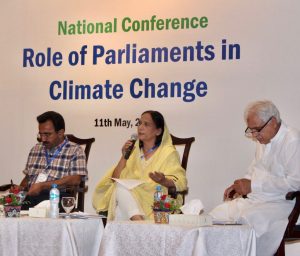Ministry of Climate Change, Islamabad- The meeting began with the confirmation of previous meeting minutes; followed by the Secretary of Ministry of Climate Change Ms. Naheed Durrani’s announcement about handing the matter of charging stations over to the Ministry of Industry and Production. However, the committee expressed their concern over the absence of the high-ranking officials of the Ministry of Industry and Production. The committee also inquired about the status of recycling of batteries from the electric cars to which the concerned representatives responded by saying that the batteries are being recycled in Pakistan. The Joint Secretary Mr. Mujtaba further briefed the committee about their elaborate plan to create a nationwide inventory for e-waste.
Minister of Climate Change Ms. Zartaj Gul raised concerns over Pakistan’s lack of any proper e-waste management system. Honorable Chairperson of the Standing Committee on Climate Change Ms. Munaza Hassan raised her concerns about the existing flawed e-waste policy. MNA Ms. Shaista Pervaiz stressed the importance of recycling and Mr. Mujtaba Hussain reassured the committee about tapping international forums such as the World Bank, UNDP, and other giants to seek assistance for the management of e-waste and creating an inventory for its containment. MNA Romina Khursheed suggested that localized industries should be taken into the fold and business opportunities should be created at a large scale.
MNA Ms. Naureen Ibrahim also recommended that Pakistan Engineering Council should be involved while MNA Ms. Andleeb Abbas inquired about having any central regulatory authority to efficiently curb the e-waste. MNA Ms. Zahra Wadood asked the executives about the presence of enough experts on board to determine the environmental repercussions of batteries that are not recycled. Moreover, MNA Syed Mustafa added that stricter regulations on electric vehicles would only discourage people from adopting climate-friendly options to which Ms. Naheed responded by saying that the taxes on electric vehicles were slashed from 17% to 1% in this year’s fiscal budget.
Furthermore, Chairperson Ms Munaza Hassan expressed her deep concerns over Environmental Protection Agency’s (EPA) reduced functionality. She inquired whether the EPA had any academia intact with the department for technical assistance and further questioned them on the Air Quality standards; the regulatory mechanism utilized by the agency and several flaws in the reporting system. She also pointed out that the parameters provided on the website were too tedious to be understood by a layman and the website needed serious reforms. MNA Ms Andleeb Abbas directed that Air metrics along with other pollution metrics were supposed to be a continuous program by the EPA, and it was supposed to display comparative data of all major cities of Pakistan. Ms. Naheed told the committee that there was neither adequate funding nor the manpower to keep up such projects. MNA Syed Mustafa raised his concerns about the fabricated representation of ICT’s climate situation and air quality, adding that in no way the current air of Islamabad was clean enough.
The Chairperson also raised her concern about the lack of a National Environment Coordination Committee under section 7(k) of the PEPA Act to which the EPA representative insisted that after the devolution of powers to provinces under the 18th amendment, the federal agency had no longer the authority to direct provincial agencies. However, the Chairperson pressed the matter by suggesting that EPA should have sought amendments in legislation to establish a viable bridge between the provincial and federal agencies to ensure coordination and flux of information.
The EPA was further inquired about the status of fines imposed on violators of PEPA, 1997. The Chairperson remarked that in two decades, the agency has provided no legal cover to its infrastructure. The matter of hospital waste was also raised, and Ms. Naheed ensured that it was being reported adequately. EPA was further inquired about the recycling of polythene bags; however, no satisfactory answer was given by the representatives. The committee members highlighted the lack of a mechanism for checking vehicular emissions. EPA was also asked about the number of Environment Monitoring Reports received by the 300 industries in the ICT region. Lack of their social media activity was also pointed out.



